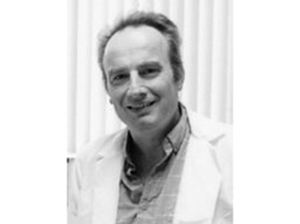
Gunther Dennert
Dennert was widely known and respected for his work as an original and creative immunologist. In his work, he focused on immune regulation by cell surface receptors for ADP-ribosylation, elucidating induction of virus specific immunity, and how the innate immune system influences alcohol induced liver injury. Under his leadership, Dennert’s laboratory also discovered tumor-infiltrating lymphocytes in mice bearing tumors, a concept that was later applied to human cancer immunotherapy.
Over the course of Dennert’s career, he authored more than 150 publications in high impact immunology and virology journals. His highly influential body of work was cited more than 8,000 times, with many individual papers cited hundreds of times.
After completing undergraduate studies at the Universities of Bonn and München, he performed graduate work in the area of phage genetics and the regulation of expression of the genes in the pyruvate dehydrogenase complex in E. coli with Wulf Henning at the University of Cologne, where he received his PhD.
Dennert was recruited to USC from the Salk Institute in San Diego in 1984 as an associate professor, and was promoted to professor in 1986. He served as chair of the Department of Molecular Microbiology and Immunology from 1997 to 2007.
Dennert is survived by his wife, Eileen, and three children.